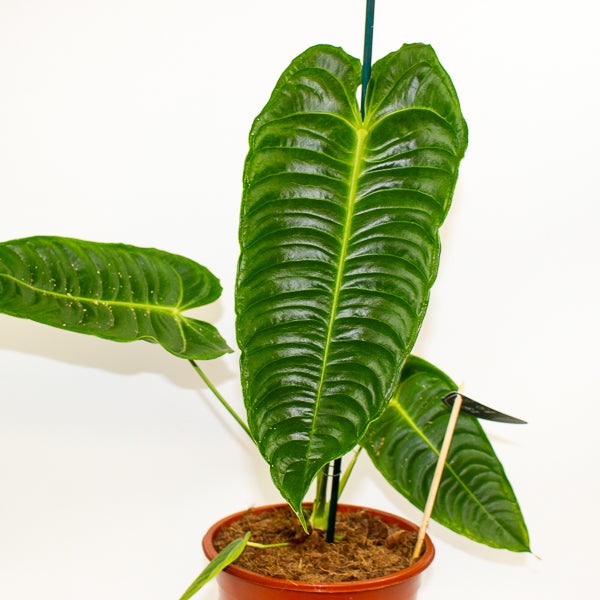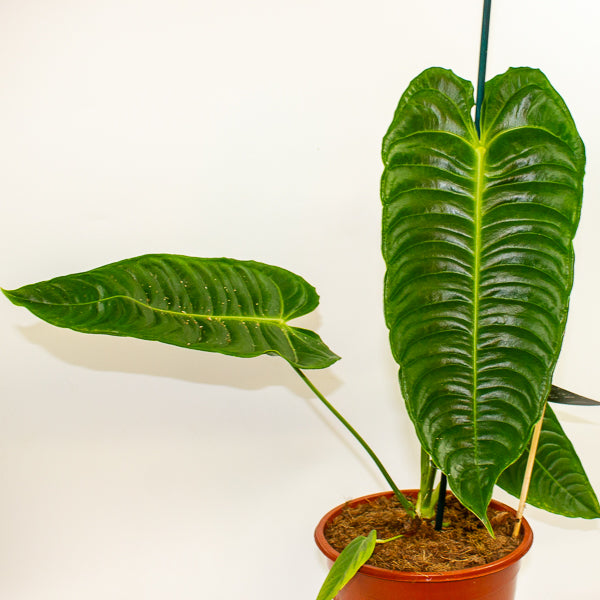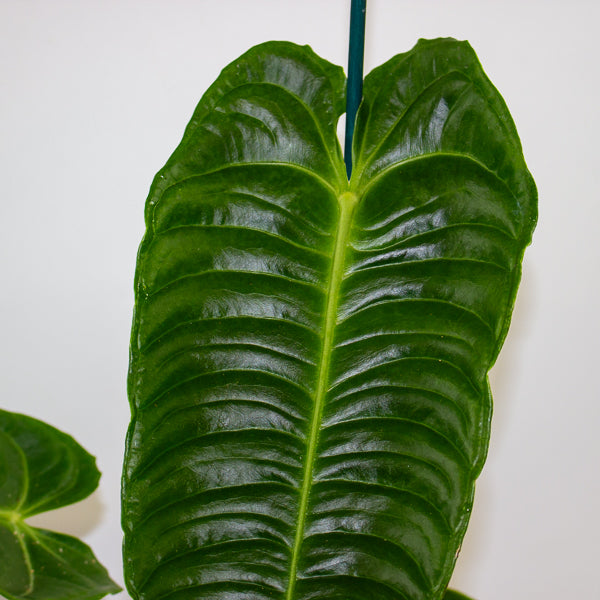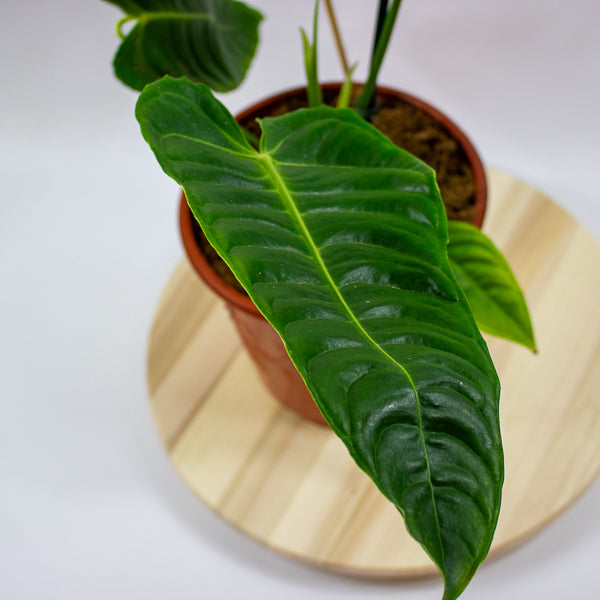1
/
of
4
Emm's Plant House
Anthurium Veitchii 12cm H45cm
Anthurium Veitchii 12cm H45cm
Regular price
£54.00 GBP
Regular price
Sale price
£54.00 GBP
Unit price
/
per
Taxes included.
Couldn't load pickup availability
Anthurium Veitchii, commonly called the King Anthurium, is celebrated for its dramatic, elongated, velvety leaves with prominent white veins. Its majestic foliage makes it a showstopper in any indoor plant collection.
- Botanical Name: Anthurium veitchii
- Common Names: King Anthurium
- Origin: Colombia, South America
- Natural Habitat: Rainforests – epiphytic or growing on trees in shaded understories
- Light: Bright, indirect light; avoid direct sunlight to prevent scorching
- Ideal Room: Humid indoor spaces, greenhouses, or large terrariums
- Watering: Keep soil consistently moist but not soggy; allow top 2–3 cm to dry between watering
- Humidity: High (60–80%); thrives with regular misting or humidity trays
- Temperature: 18–27°C; sensitive to cold drafts
- Feeding: Balanced liquid fertiliser every 4–6 weeks during active growth
- Soil Type: Well-draining aroid mix with orchid bark, perlite, and peat
- Propagation: Stem cuttings or division
- Eventual Size: Leaves can reach 90–120 cm long; overall plant can be 1.5–2 m tall
- Pests: Spider mites, mealybugs – treat promptly
- Pet/Child Safety: Toxic if ingested
- Repotting: Every 2–3 years or when root-bound
- Pruning: Remove damaged or yellowing leaves; supports better air circulation
- Air Purification: Moderate
- Rarity: Rare and highly prized among aroid collectors
- Folklore: Symbolises prestige and elegance due to its regal appearance
Care Guide
Care Guide
Anthurium Veitchii, commonly called the King Anthurium, is celebrated for its dramatic, elongated, velvety leaves with prominent white veins. Its majestic foliage makes it a showstopper in any indoor plant collection.
- Botanical Name: Anthurium veitchii
- Common Names: King Anthurium
- Origin: Colombia, South America
- Natural Habitat: Rainforests – epiphytic or growing on trees in shaded understories
- Light: Bright, indirect light; avoid direct sunlight to prevent scorching
- Ideal Room: Humid indoor spaces, greenhouses, or large terrariums
- Watering: Keep soil consistently moist but not soggy; allow top 2–3 cm to dry between watering
- Humidity: High (60–80%); thrives with regular misting or humidity trays
- Temperature: 18–27°C; sensitive to cold drafts
- Feeding: Balanced liquid fertiliser every 4–6 weeks during active growth
- Soil Type: Well-draining aroid mix with orchid bark, perlite, and peat
- Propagation: Stem cuttings or division
- Eventual Size: Leaves can reach 90–120 cm long; overall plant can be 1.5–2 m tall
- Pests: Spider mites, mealybugs – treat promptly
- Pet/Child Safety: Toxic if ingested
- Repotting: Every 2–3 years or when root-bound
- Pruning: Remove damaged or yellowing leaves; supports better air circulation
- Air Purification: Moderate
- Rarity: Rare and highly prized among aroid collectors
- Folklore: Symbolises prestige and elegance due to its regal appearance
Share








